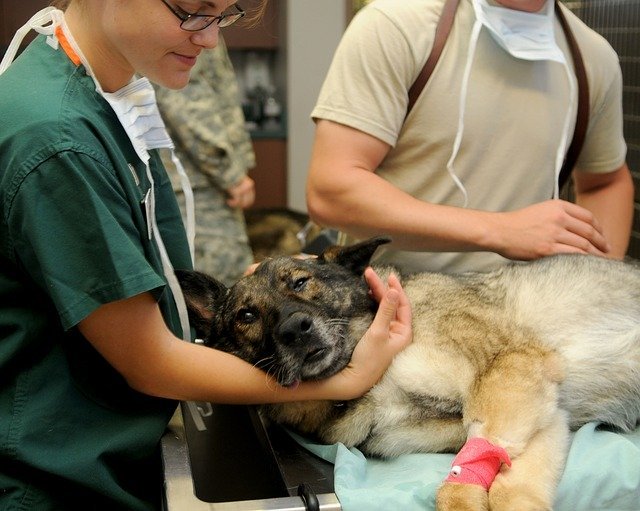
5 Tips from Veterinarians on Being Prepared for a Pet Emergency
Pets don’t get sick on a schedule — Often an emergency will catch you off-guard, leaving you scanning for well-reviewed veterinary ERs at 3am, calling them to make sure they can see your pet, and frantically typing their address into your GPS.
However, your pet emergency doesn’t have to be a crisis. Here are 5 tips to help your next pet emergency be less stressful and nerve-wracking for everyone.
1. Have Your Pet’s Medical Records Handy
If you already have your pet’s medical records, put them in an easy-to-access folder. If you don’t have your pet’s records, ask your veterinarian to print out a copy.
This is especially important if your pet has a chronic illness. The most important records to keep are those that show blood work, long-term medications, or contain other diagnostic results. These animals will get the more focused treatment when they come in for an emergency because we can pick up where the last veterinarian left off. We do not, however, need old vaccine records or reports of minor injuries or illnesses.
2. Know Your Pet’s Medication History
If your pet takes any medications (including flea and heartworm preventives), please take a picture of the bottles, or bring them with you. You can also save a text document on your phone of the name, dose, and administration instructions for these medications. Not all types of medications can be given together, and knowing the exact type and amount of medicine your pet receives can prevent harmful medication interactions.
3. Know Your Nearest Emergency Clinic
Not all veterinarians offer 24/7 emergency care!
I recommend all pet owners familiarize themselves with the phone number and address of their local ER before there is an emergency. If you have an exotic pet, call during normal business hours to make sure they can treat it in times of emergency.
If you are unsure of which local Veterinary ER you should visit, your daytime veterinarian can give you some recommendations. We work very closely with referring clinics, and your primary care vet can give you a great recommendation for who will give your pet the very best care.
Once you’ve verified the clinic meets your needs, put their phone number on your fridge or save it in your phone. This will make it easy to get in touch when that middle of the night emergency happens.
4. Set Aside an Emergency Fund
It is no secret that Emergency Care is expensive. I recommend all pet owners set aside money in a savings account for these unforeseen expenses.
Pet Insurance is also a great option for many owners, who can receive up to 90% of their total visit costs reimbursed by their monthly insurance plan. Having this financial lifeline can eliminate significant stress during your visit, by enabling you to provide the best care to your pet without having to compromise on testing or treatments.
5. Let Your Pet Sitter Know the Plan
If you are leaving your pets behind while you go out of town, be sure to leave your pet sitter with all the information your vet will need. Show them where the animal’s medical records are kept, and pass along the contact information for your nearest ER.
You might also print out a “cheat sheet” with details about your pet’s diet, medications, and medical history. Consider also leaving a credit card behind for use during emergencies, especially if it will be difficult to contact you during off-hours.
Conclusion
Having a beloved family pet comes with the responsibility of caring for them when they inevitably fall ill on holidays, weekends, or in the middle of the night.
We know how stressful an Emergency Room visit is, especially when you are worried about your fluffy family member. As Charlotesville’s only 24/7 emergency vet, we at VETSS strive to make sure you are treated with the same honesty and compassion that we all want when our pets are ill.
—
Rachael Boyd, DVM
Emergency Veterinarian
VMRCVM Alumni
For more information, contact our team at VETSS, a Charlottesville VA urgent care animal hospital!
